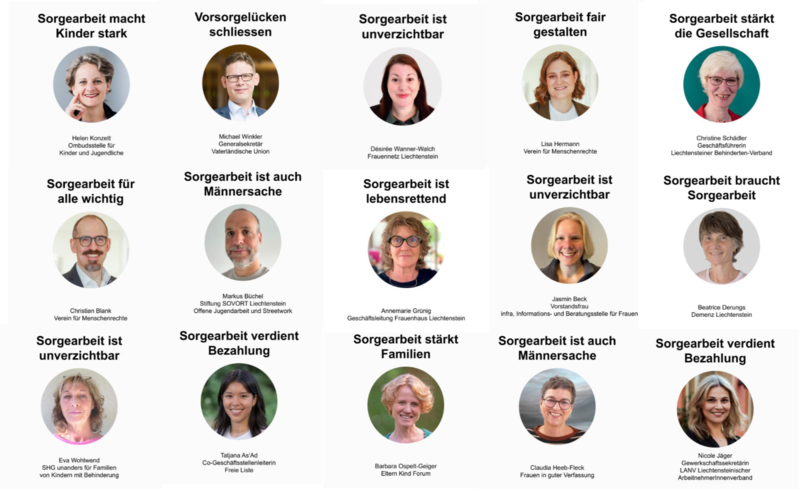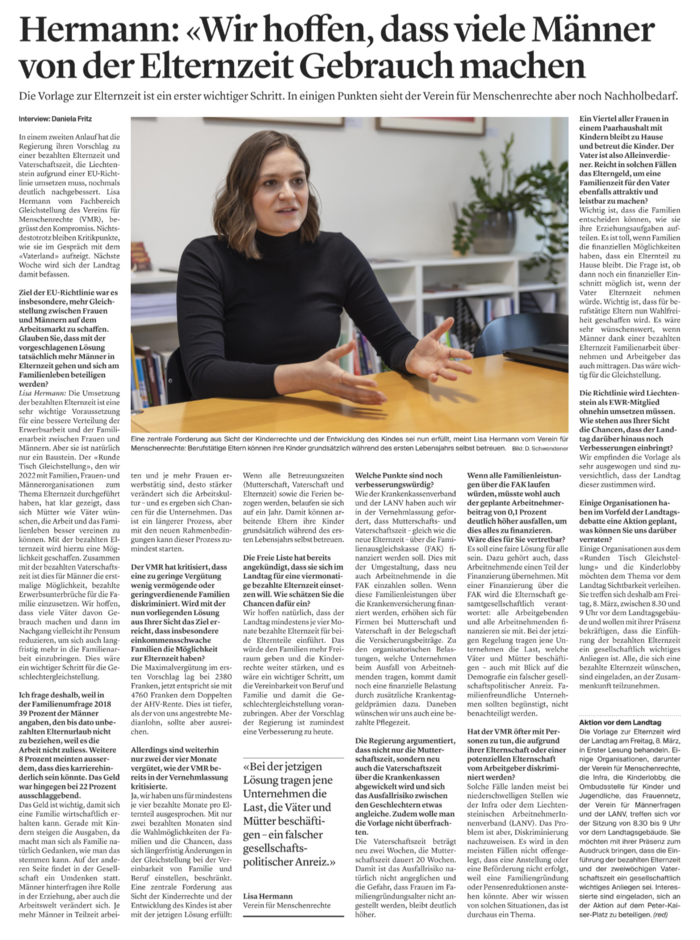Family and employment
A better work-life balance is a key social and gender equality policy issue. The promotion of work-life balance is emphasized as an important concern in the 2021-2025 government programme. According to the latest salary statistics from the Office for Statistics for 2022, the pay gap between men and women has increased by 0.1 percentage points to 14.1 percent since 2020. The pay gap between women and men remains high and cannot be explained objectively in some cases. Calls for comprehensive wage analyses and targeted measures to reduce pay inequality have not yet been implemented.
Women in management positions
According to a specific evaluation of sustainability indicators by the Office for Statistics on July 1, 2022, the proportion of women in management positions increased by 3.6 percent. However, the shadow report on the UN Convention on the Elimination of All Forms of Discrimination against Women (CEDAW) continues to reveal structural disadvantages in the workplace. Women are disproportionately often employed in the low-wage segment and are less frequently represented in management positions. State childcare is insufficiently developed and often unaffordable. In consultations with infra or LANV, for example, women also report discrimination when returning to work after maternity leave. In the area of education, there are calls for gender equality, violence prevention and modern role models to be more consistently anchored in lessons.
As part of the consultation process on the implementation of EU Directive 2022/2381 to ensure a more balanced representation of women and men in management positions, the VMR called for voluntary measures to promote gender equality in Liechtenstein to bemeasures to promote gender equality in Liechtenstein have not yet had the desired effect and that a binding quota for women should be introduced for all management positions in the national administration, public institutions and commissions. It proposed extending the directive not only to listed companies, but to all companies with more than 250 employees in Liechtenstein.
Distribution of care work
Care work - i.e. unpaid activities such as running a household or looking after children and people in need of care - is still predominantly carried out by women. A survey conducted by the Lucerne University of Applied Sciences and Arts in 2021 shows that women in Switzerland not only perform the majority of this work, but are also more likely to reduce their working hours to do so. Many would like social recognition and financial compensation for this. At the same time, the 2018 survey on family policy showed that men would like to be more committed to their families and work more flexible hours in order to be more involved in family care. There are no official statistics on unpaid care work in Liechtenstein. However, the AHV-IV-FAK annual reports give an indication of the increase: the number of recipients of care and nursing allowances rose from 244 in 2010 to 759 in 2024.
As part of the development of Liechtenstein's gender equality strategy in October 2024, the Round Table on Gender Equality, a civil society network, is calling for the introduction of a care barometer to systematically survey unpaid care work with the aim of making the distribution between the genders visible and counteracting structural disadvantages for women - such as multiple burdens, career breaks and lower pensions. In addition, the "unpaid work" module from the Swiss Labor Force Survey (SLFS) is to be methodically adopted by the Office for Statistics in order to strengthen the data basis for the gender equality strategy.
Carry out a statistical survey of care work and its distribution.
Paid parental leave
After several years of waiting and preparation, Parliament passed the law introducing paid parental leave in the fall. The EU had already adopted a directive on paid parental leave in 2019 (EUR 2019/1158), which must also be implemented in Liechtenstein. Parental leave is a key element for the more equal distribution of paid and unpaid work between both genders and is therefore an important prerequisite for equal rights and gender equality.
Although only from 2026 - but retroactively to the reporting year - each parent is now entitled to a total of four months of parental leave. Two of these months are remunerated at 80% of the average relevant monthly salary (capped at a maximum of CHF 4,760 per month). Parental leave must be taken until the child is three years old. The entitlement can be claimed flexibly in the form of hours, days, weeks or months, and there is also an entitlement to up to five unpaid care days per year for the care of relatives.
Parliament and various civil society organizations took the opportunity to revise the financing of maternity leave with the upcoming revision of the law on the introduction of paid parental leave. This is covered by health insurance, which leads to an additional financial burden for companies with pregnant women. As a result, it can lead to discrimination against women in employment, which in the opinion of the VMR is a potential violation of the Gender Equality Act.
In the second reading of the law on paid parental leave, Parliament therefore also spoke out in favor of financing maternity leave via the Family Compensation Fund and instructed the government to implement this accordingly. The government has granted itself two years for the preparatory work, meaning that the new regulations will come into force in January 2026, with retroactive effect for two years.


